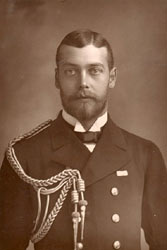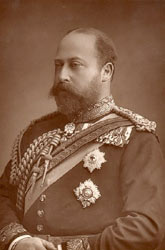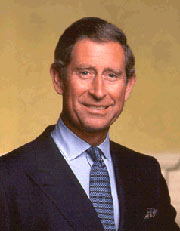
Feature – The Prince of Wales
What is Wales?
Welshmen have been struggling with this question since the birth of Wales as part of the Roman Empire. ….Where is Wales? ….What are its boundaries? ….Is Wales even a single unified entity?
Like many of the bits and pieces in what is now known as the United Kingdom, Wales has struggled against itself notoriously, refusing flat-out to give in to the idea of unity.
Conflicts within Wales led to the constant reassessment and realignment of county borders. Conflicts between the Welsh and the neighbouring Saxons (of England) led to equally endless shifts in the Welsh-English border.
FREEEEEEDOM!!
As time passed, the English got their act together and developed a relatively consistently powerful government and military, with which they overtook poor Wales. Wales remained free at heart, and was always on hand to provide a feisty uprising and reassert Welsh independence at the first sign of weakness from the English monarchy.
Wales passed in and out of independence in this manner, chasing the ebb and flow of strength in English leadership. However, without managing unity for itself, internal conflict often served to undermine Welsh defences and aid the English. Lack of internal cohesion turned the un-united kingdoms of Wales into easy pickings.
So it came to be that several Welshmen made attempts to forcibly unify Wales. Four Welshmen succeeded in (temporarily) uniting Wales. The greatest of these was Llywelyn the Great, who created an intellectual body of Wales by declaring himself “The Prince of All Wales.”
In calling himself the ruler of All Wales, Llywelyn was stealthily asserting the idea that all of Wales was a body to be ruled, as casually as if this idea were a point of fact! So, by declaring himself, prince, Llywellyn was implying that English leadership did not cover Wales, but that Wales was in fact an independent body in need of a distinct leader.

Llywelyn the Great passed the modified title, “Prince of Wales,” down to his grandson, Llyewlyn ap Gruffydd (how do you pronounce these names? Really! You’d think a key got stuck on the ol’ typewriter!)
Llywelyn ap Gruffydd was killed in battle in 1282. The English annexed Wales 2 years later.
King Edward I was willing to make a small compromise to the Welsh, by appointing a special Prince of Wales. This new prince would be a part of the English government, and would thus serve to attach Wales to England, and to distinguish Wales as an area meriting different rule from the rest of England.
According to one story, the Welsh refused to have a prince who spoke English. So, Edward I introduced his infant son as the future Prince of Wales. Of course, by the time Edward II was officially declared Prince of Wales at age 17, he had most certainly learned to speak English.
Thus, the Prince of Wales title was created less for the independence of the Welsh people, but to turn their own mechanism for intellectual independence against them. As long as a Prince of Wales exists, Wales is not free.
Ruling the Unruly
The tradition that has developed around the Prince of Wales is that it is a title passed down to the English Sovereign’s heir apparent. Thus, the entire position is a bit of a joke, the Prince of Wales is basically the son of the King of England, and the next coming king, himself. The Prince of Wales is usually also the Duke of Cornwall and the Earl of Chester, appointed as such either from birth or from his parent’s accession to the throne. Thus the rule of the supposedly semi-independent Wales is extremely closely tied to the rule of England.
This proved a great trick for the English, as the up and coming king was given free training grounds. Unfortunately for the Welsh, this might also mean that their faithful prince would use them to learn what not to do. Oops!
As the heir apparent, the Prince was usually the King’s eldest son, though in the case of George III, he was the King’s grandson. It is also conceivable (though it has never been the case) that, if the heir apparent were a girl, there could be a Princess of Wales.

There is no obligation for the title to be bestowed. Rather, it is created anew each time a new Prince of Wales is named. Thus, there have been long periods in which no Prince was declared.
The following are all of the Princes of Wales who were created as such because they were the heir apparent to the English throne (in other words these are the Princes of Wales who were not actually Welsh!):
Edward II
Edward, the Black Prince, son of Edward II (he died before his father, thus never became king)
Richard II, son of the Black Prince
Henry V, son of Henry IV
Edward, son of Henry VI (killed in battle)
Edward V, son of Edward IV
Edward of Middleham, youngest son of Richard III
Arthur, son of Henry VII (died 1502)
Henry VIII, Arthur’s younger brother
Charles I, son of James VI and I
James Stuart, the Old Pretender, son of James VII and II
George II
Frederick Louis, son of Georve II (died before his father)
George III, son of Frederick Louis
George IV
Edward VII
Prince Charles
Just as there are no official rules about the bestowment of the title, there are no rules for what the role of the Prince is. Princes of the past have determined their own roles in the Welsh government.
And, like all figures in the British Monarchy, the role of Prince of Wales has become much more of an honorary title than an actual statement of de facto rulership.
….Though perhaps it never was.
Join us soon for another Feature.
